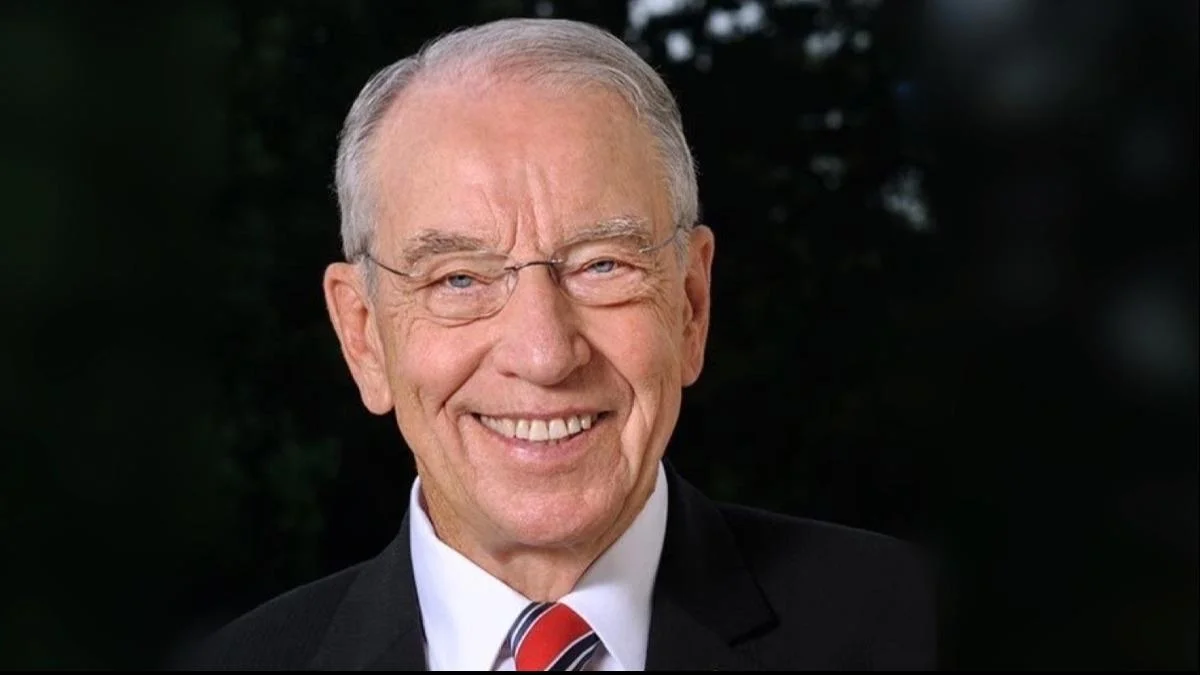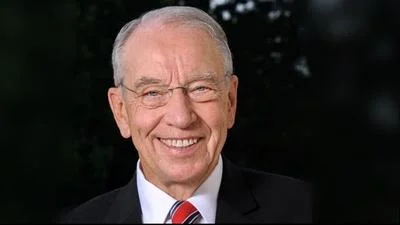Sen. Chuck Grassley - US Senator for Iowa | Official U.S. House headshot
Sen. Chuck Grassley - US Senator for Iowa | Official U.S. House headshot
Senate Judiciary Committee Chairman Chuck Grassley (R-Iowa) has addressed the Washington Post Editorial Board in response to its May 29 editorial titled “In defense of nationwide injunctions.” In his letter, Grassley emphasized what he sees as the unconstitutional nature of universal injunctions and argued that such judicial actions create an imbalance among government branches.
Grassley wrote, “The Post’s Editorial Board argued that, in spite of the lack of historical precedent and constitutional basis for universal injunctions, this judicial maneuver is ostensibly a necessary ‘check on presidential power.’”
He continued, “But allowing district judges to exert bloated authority beyond the cases and controversies before them only creates further imbalance among the branches of government. The Post should have taken into serious consideration Article III of the Constitution, which limits courts to deciding ‘cases’ or ‘controversies’ — as well as the first 150 years of American history, during which time, as the board acknowledged, scholars have found no documented use of a universal injunction.”
Grassley also noted Congress's responsibility in policy-making: “It’s not the judiciary’s responsibility to set policy; that power is vested in the people through their elected leaders. For decades, Congress has failed to write specific legislation, leaving the door open for a variety of interpretations. Congress can and must pass clearer laws, but the legislative branch’s past mistakes aren’t a free pass for district judges to overstep constitutional guardrails and play policymaker.”
He argued that continued use of universal injunctions undermines checks and balances and puts pressure on the Supreme Court by increasing emergency appeals. Grassley described his legislative proposal: “The bill I introduced to eliminate universal injunctions would instead encourage appropriate appellate action by making temporary restraining orders immediately appealable. In those cases where widespread judicial relief is appropriate, Congress has already provided a mechanism: class-action lawsuits. Courts should no longer be permitted to avoid the class certification process by opting instead for universal injunctions.”
He expressed hope for Supreme Court intervention: “I hope the Supreme Court steps in quickly to address injunctions. In the meantime, I’ll keep moving my legislative fixes toward the finish line, including through reconciliation.”
Grassley also called for bipartisan cooperation: “I continue to encourage my Democratic colleagues to join me in this effort. Many Democrats have sharply criticized the practice in the past — including in the case of the mifepristone ban The Post’s editorial referenced — but have shelved their opposition to universal injunctions since President Donald Trump returned to office. The Post itself argued for limiting injunctions in a separate editorial last June.”
He concluded with a warning against political influence overriding principle: “The constitutional dangers posed by universal injunctions haven’t changed over the past year; the only thing that has is the White House’s current occupant. We shouldn’t let politics overcome principle by failing to address this bipartisan problem now.”





 Alerts Sign-up
Alerts Sign-up